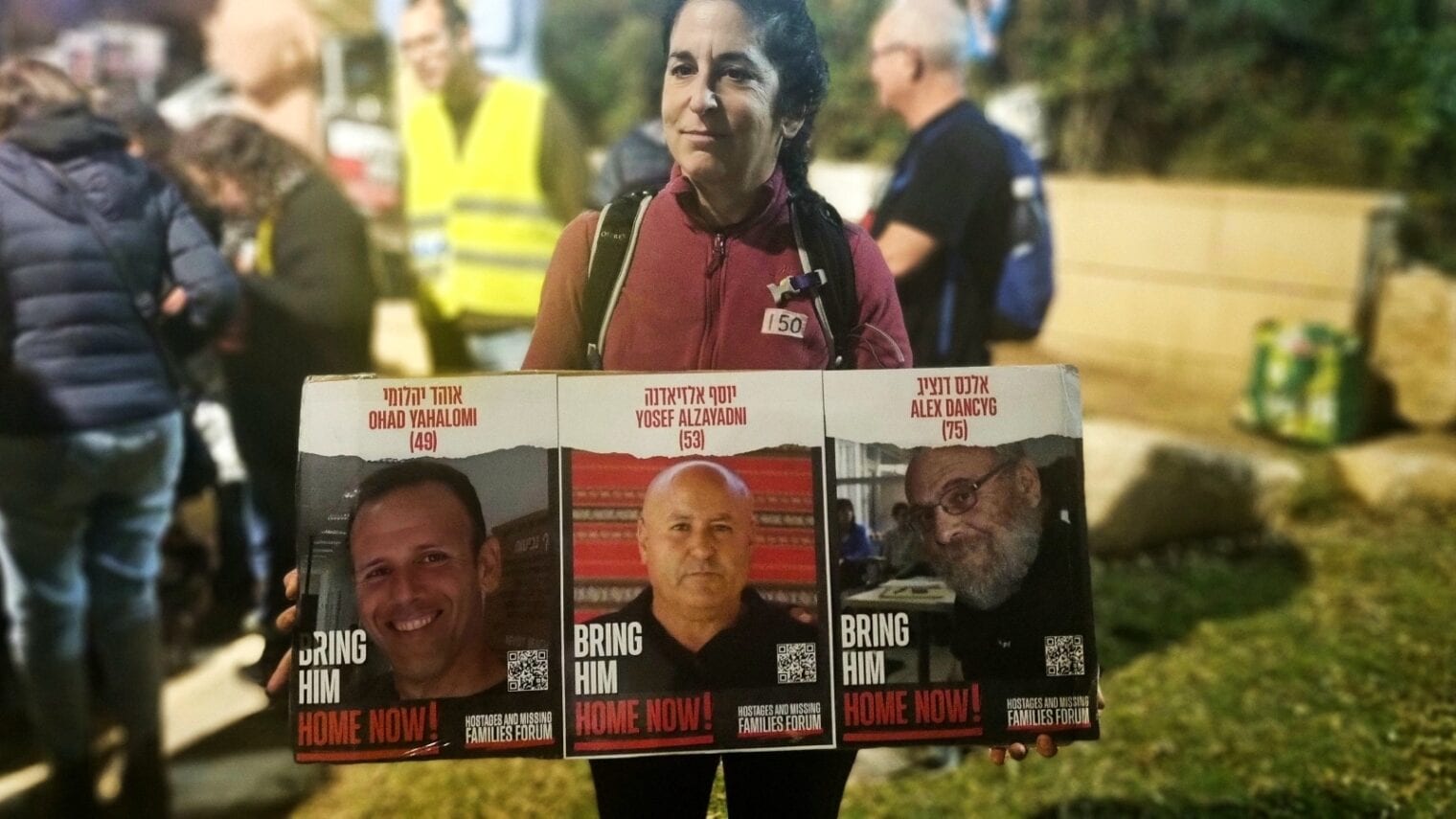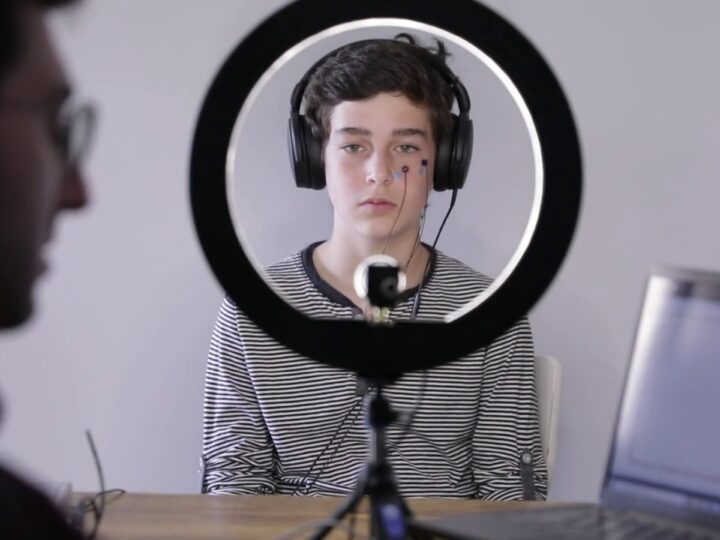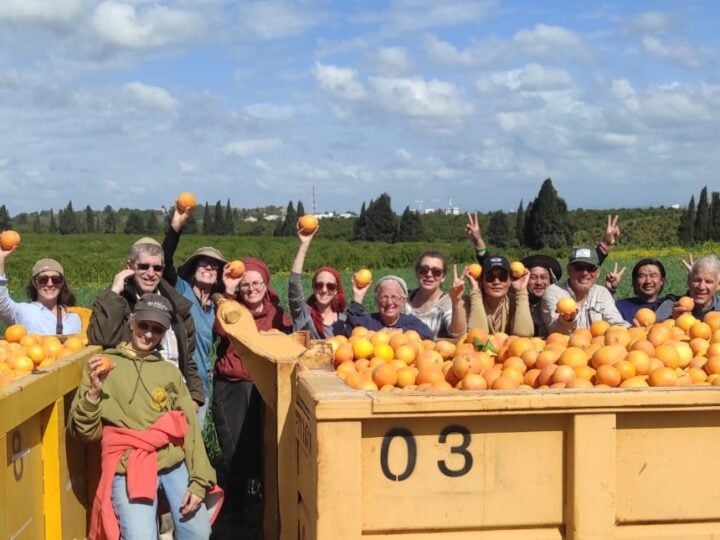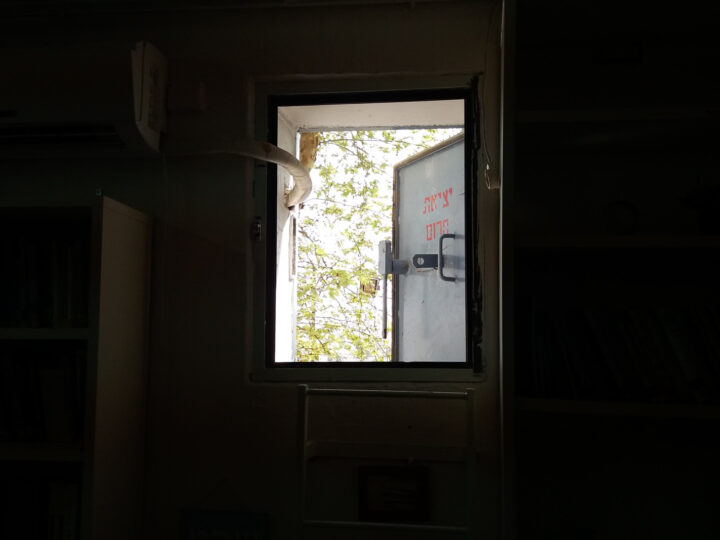March 4, 2024 marked 150 days since the October 7 attacks by Hamas. The onslaught on Israeli communities left over 1,200 people, mostly civilians, dead and many more wounded.
The attacks also resulted in more than 250 Israeli and foreign nationals taken hostage by the terrorists. Over 130 of them are still being held captive in Gaza by Hamas, though 32 are no longer alive.
At the start of the war in Gaza, which came as a direct response to the attacks, the issue of hostages was at the top of the priority list for Israel. Recently, however, the issue has been dwindling from the public conscience, particularly around the world, but even in Israel where fatigue with the war is setting in.
Better late than never
Admittedly, prior to March 4, I had never attended a rally, or any other event for that matter, staged in the name of the hostages. I watched the rallies on TV and social media, believing that screens could accurately convey the atmosphere of such events.
I was wrong.
I arrived at Hostage Square in Beersheva at around 6pm. The square is admittedly not as illustrious as the one in Tel Aviv. But I was still surprised to see it mostly empty, even though the event was all but ready to go.
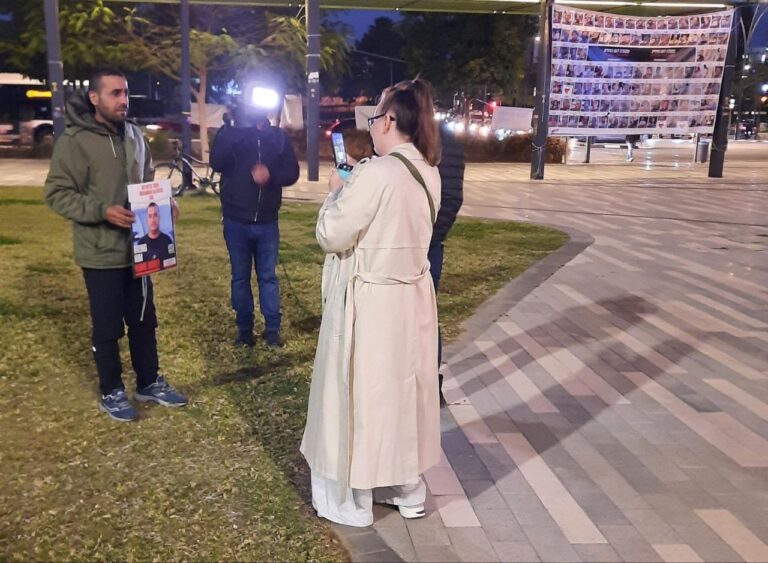
The event in question wasn’t just another rally or march. It was a multifaith prayer for the return of hostages — led by a Jewish rabbi, a Catholic priest and a Muslim sheikh.
Ironically, all three were running late. As I looked around the square, I noticed a man quietly sitting by himself on the grass, holding onto a banner image of someone.
I approached him. “Are you a relative of one of the hostages?” I asked.
“Yes, this is my brother,” he said, pointing to the image.
The man turned out to be Salem Alatrash. His brother, Mohammad Alatrash, a 40-year-old father of 13, has been missing since October 7 and is believed to have been taken hostage by Hamas.
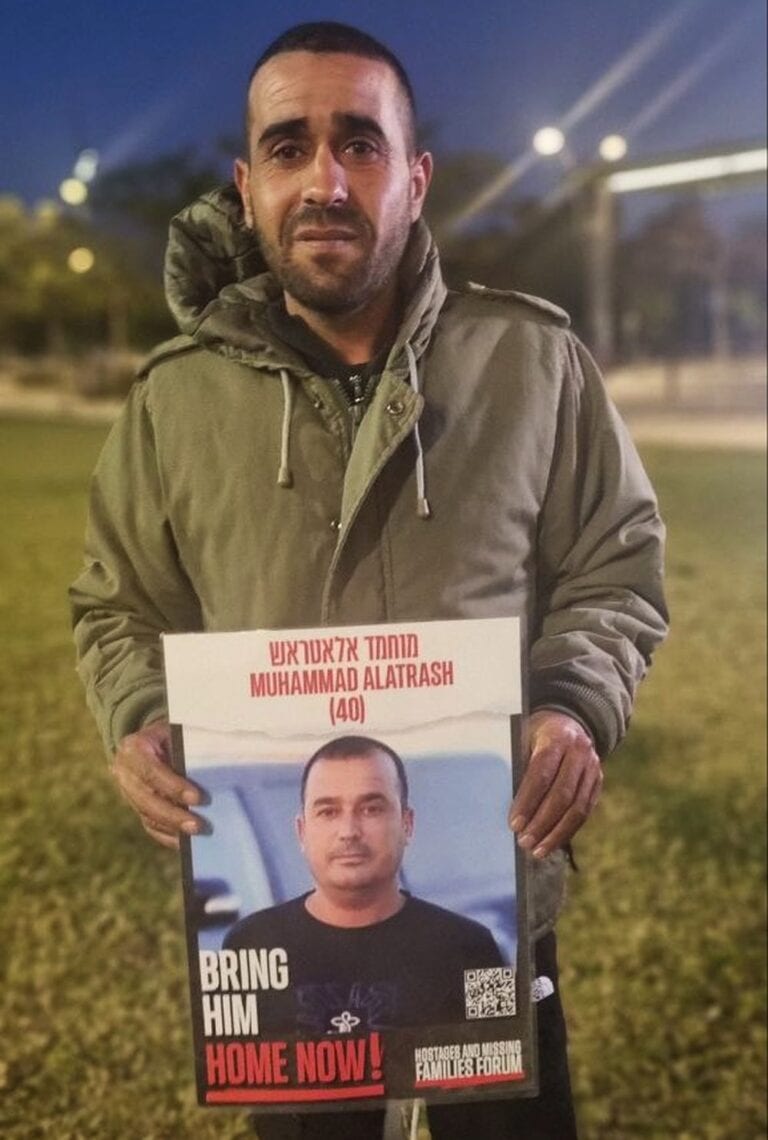
Bedouin victims
The Alatrash family is from the Bedouin village of Sawa, near Beersheva.
At least 19 Bedouin Israelis, both civilians and soldiers, have been killed since the start of the war, most on October 7.
At least six Bedouin Israelis were taken hostage. Four of the hostages were from the Ziyadne family, from the Bedouin city of Rahat, also near Beersheva.
Siblings Bilal and Aisha Ziyadne were among dozens of hostages released in November following a deal brokered by the United States, Qatar and Egypt. Their older brother Hamza, 22, and father, Youssef, 53, are still being held captive. Sheikh Ali Ziyadne, who led the Muslim prayer that evening, is Youssef’s older brother.
“Every day feels like a year to us,” Alatrash told me, visibly tearing up.
“My brother’s youngest child is only five months old. Our mother is in very bad shape. We want him home. We want all the hostages home,” he said.
The prayer
Around an hour later, the three clergymen finally made it to the makeshift stage. More and more people began gathering around it, including random passersby intrigued by the unusual setup.
Father Roman Kaminski from Warsaw, who has been in charge of the Beersheva Catholic Parish since July, was the first to take the stage. In fluent Hebrew, he read a prayer not only for the safe return of the hostages, but for the safe return of the soldiers as well.
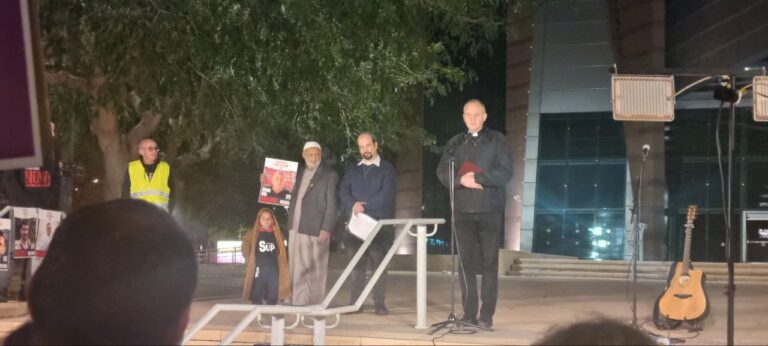
Rabbi Michael Ibn-David, the Beersheva Eshel Avraham community rabbi, was up next.
Before he took to the stage, I managed to exchange a few words with the rabbi. He told me it was ironic that we had “celebrated” National Family Day only five days earlier.
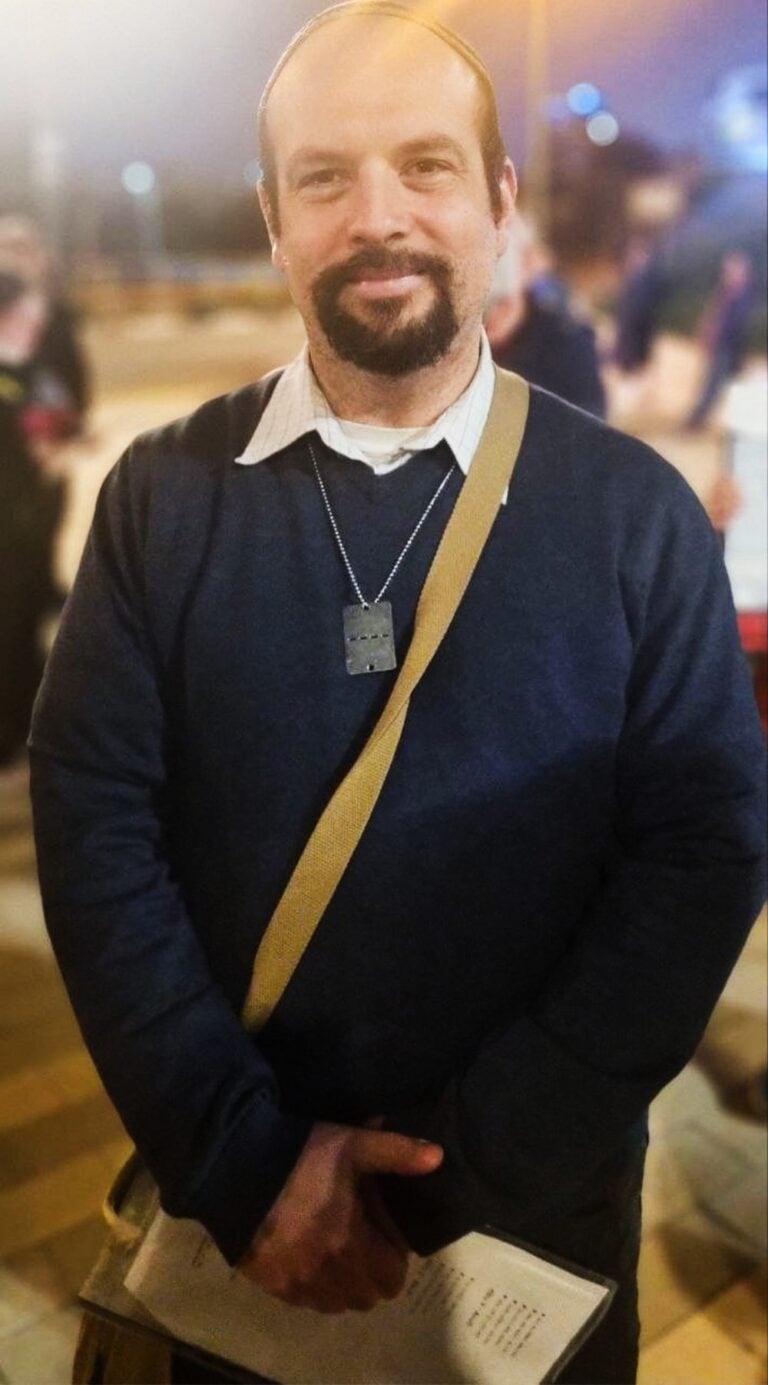
“There are so many families that are not whole, who are missing their loved ones. Today we’re praying for all of them.”
Sheikh Ziyadne was the last to take the stage. His prayer was the only one not in Hebrew and the only one so loud, it felt like the entire city must have heard his plea.
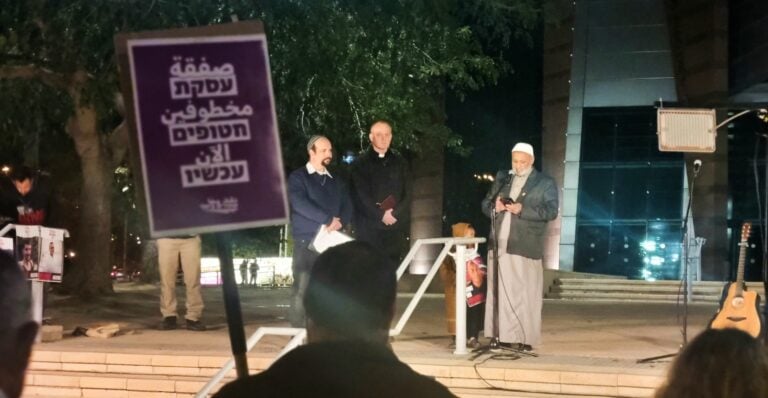
With tears in his eyes, he held a banner image of his missing brother in his hands the entire time.
A depressing live show
Most of those in attendance were not relatives of the missing. They were ordinary people who turned up to show their solidarity.
Some were crying, and some were holding banners of the hostages even though they have never met them personally.
One thing is certain. The experience was nothing like what it looks like on TV. Even such a relatively small-scale event evoked very strong emotions in everyone in attendance. You could sense it.
Seeing the few relatives in attendance talking to the activists and being engulfed by the atmosphere gives a whole new perspective on what the families of those still held captive have to go through on a daily basis.
The least we can do is comfort them despite our own discomfort.




